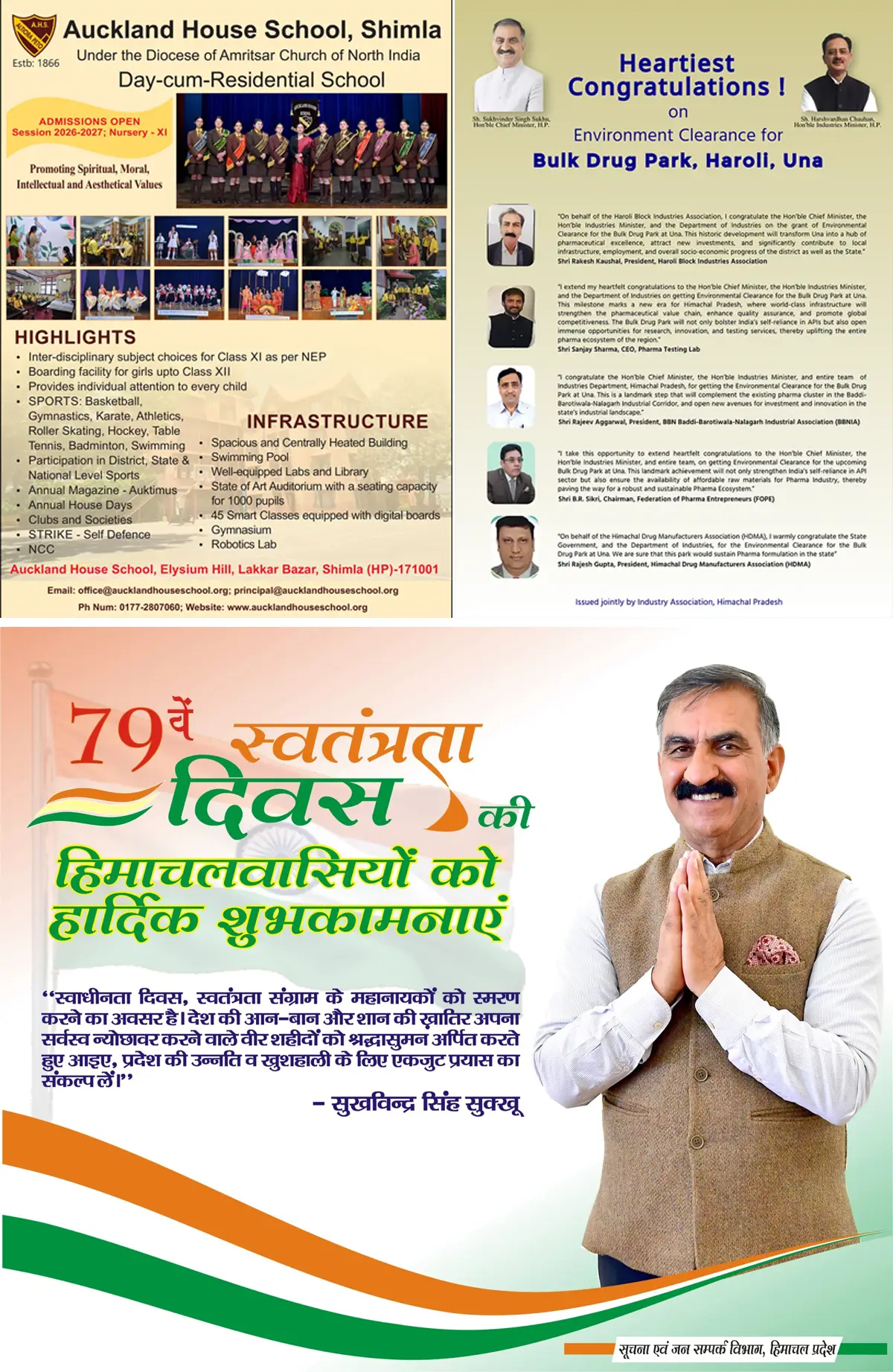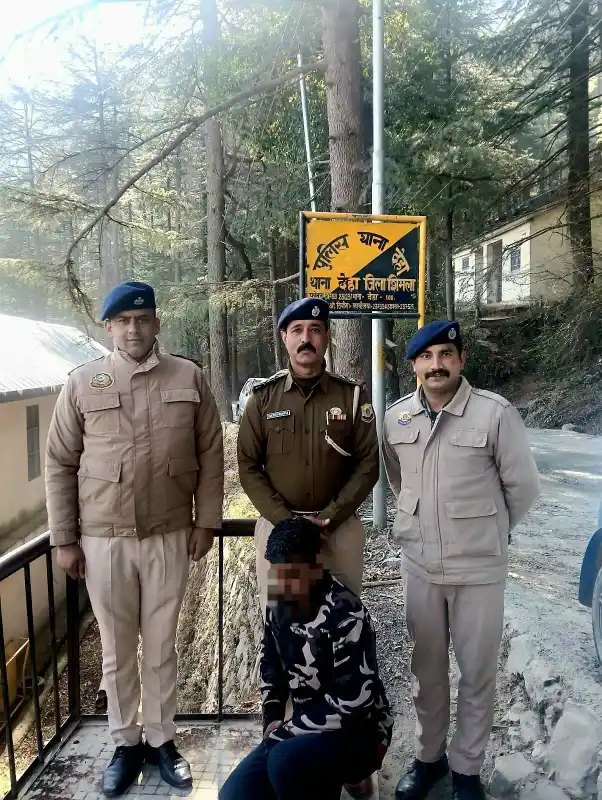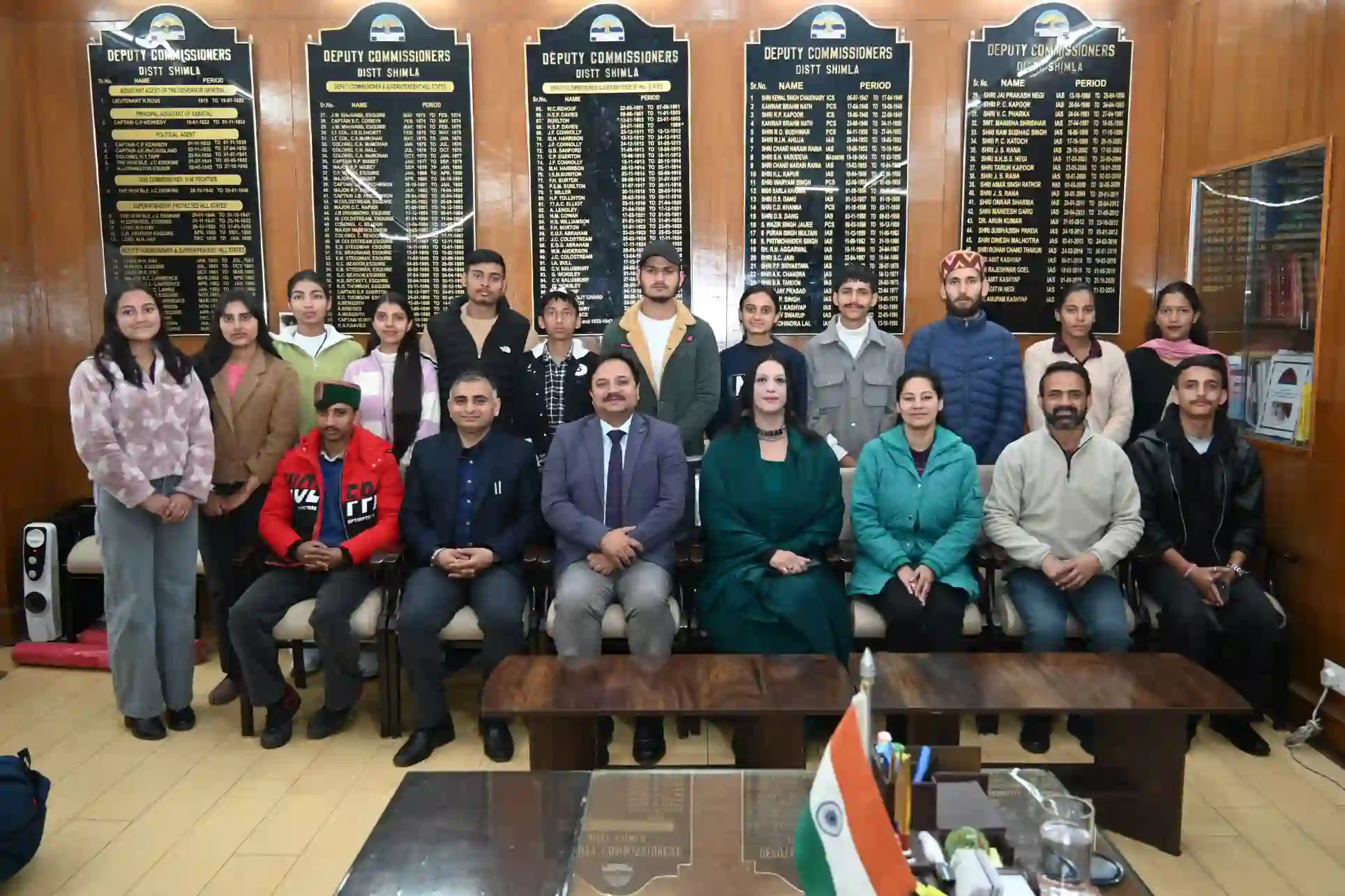Online Classes: A Mirage or An Oasis for Educational Development
8 min read
Shimla, June 15 (Assistant Professor & author Pyar Singh Thakur) : We live in a digital world where communication influences our thought process. Be it a teacher, a leader, a politician or a movie director, a good communicator always dispels ignorance. The greatest challenge however is reaching out to the not so easily reachable, who live in remote areas, to build a resounding community which can thrive and continually make progress (does not matter how small it is), even during challenging situations of COVID-19 pandemic.
In densely populated urban cities, if some online classes appear in smart phones or laptop of the students shows some visuals of classes, notes, the message reaches the intended students because most of them are literate and well connected. On the other hand, online classes do not reach the remote and rural areas in a proper manner. Percolation of online classes takes longer time in rural areas due to poor connectivity and lack of networking. Internet signal is another barrier while communicating.
The widely accepted languages like English and Hindi are not spoken by majority of the rural population and small children and their parents are not able to handle computer based online/digital platform to provide their kids as parents of small children cannot support their small children, as the literacy rate is also remarkably low in rural India. Although the big students in rural areas are able to handle and attend online classes but there is also lack of convenient of smart phones which cannot be provided by poor parents to each household children separately to attend separate online classes. In this crisis of pandemic time where people have gone jobless and facing economic problem cannot afford smart phones and bear the cost of recharge of smart phones every month. These challenges necessitate a targeted approach.
Although offline classes are the most important medium of teaching-learning communication to reach out to the students of each standard, online class’s popularity is lower than that of offline classes and face to face interaction between teacher and students to gain knowledge better. Having complicated for kids, illiterates, rural masses and masses living in remote areas, as online classes are not effective through online way and smart phones is not viewed as user friendly and appealing to the rural children mostly and rural parents of the children. Online classes are one failure attempt to reach the rural children.
Reaching out through grassroots advocacy to inform, interact, create awareness, lesson delivery, assignments, exercise, check home work, internship, practical affairs, feedback, successful conducting examinations and access to results is very essential for the success of the governments, administration, management, educational institutions, welfare and development schemes. But under pandemic time or emergency time, online classes are not important for educational development; both urban and rural students as well as population cannot also reap the rewards equally as there is a big digital divide, media literacy and computer literacy in India and developing/poor countries in comparison to developed countries of the world even our teaching fraternity mostly at school level, college level and university level are not trained in this genre of online process.
At school level, it is more worsen where school-teachers are not so perfect to conduct online classes neither they are media literate, computer literate and digital literate. This thing shows the failure of education sector at school and college level and government universities as many more faculties are tenuous in digital literacy. Most of government teachers have no basic knowledge of computer and digital media is not under their command of knowledge.
It shows the genuflect of Indian teachers before modern information technology and digital techniques. Most of government teachers procrastinated behaviour to take online classes by saying internet signal obstruction and most of them use the formula of Cut, Copy and Paste from Google or send the teaching topics of others to send the targeted students, they are not even able to interact with the students through Zoom App or Google Meet App facilities in the smart phones, and some are those who send study material by photo copying from help books and showed their technophile to teach students and performing their duties with honesty. For government teachers, corona curfew and the words lockdown has become a cash cow and a boon to muster big amount of salary each months without regardless of the students and without their travail at their homes. These government school administration could not formulate their media cell to teach the students very well neither they sought for maintain their techno based mini office at their office to conduct online classes cogently and reachable to each student.
The slogan ‘Har Ghar Pathshala’ produced as a recourse to the teachers not for working themselves and they leave their onus on this governmental education platform even they do nothing from their sides and send the ready-made link to the students and sometimes send YouTube-link to the students, how a normal student or student from rural back ground be able to understand the lessons on various courses without the interaction of the teacher.
This failure indicts the failure of Indian education system. At rural level, it is in dire straits as teachers in government schools are not appointed on the basis of their practical knowledge and professional prowess, like in Himachal Pradesh and in other States of India, teachers come through ready-made policy of the governments as from PTA Policy, Para teachers, Vidya Upasak, Shiksha Mitr, volunteer teachers and some teachers who are selected through public service commission or staff selection commission are also not so intelligent as their selection is done on the basis of attaining more bookish marks in the commission to be in marks attaining merit not on the basis of professional skills and practical skills to make more vote banks.
Online classes or digital knowledge is not developed in India. The claims of number one in education made by the Indian States like Kerala and Himachal Pradesh produced tenuous in COVID pandemic and the most of government teachers’ lobby is badgering Indian education system as they have failed themselves in the ordeal of imparting education to the students both in offline and online education mode. Indian education system began to follow online or virtual classes when HRD (Human Resource Development) Ministry and UGC (University Grants Commission) instructed school, colleges and universities to go through online education to the students living at home due to corona pandemic and then lockdown situation imposed by the government to save from pandemic, and also provided virtual tools/platforms of online education but Indian education system was not concoct to online education neither had experience of online classes nor the students were ever acquainted with online education. This depicts that Indian education system is still leading traditional way of education while in the same time we moot of new education policy, where new education policy of the government stands with the failure of Indian education system. This decision of the Government led to the genesis of several advocacies regarding online classes and so on which essentially catalyzed the discussion regarding online classes in India.
Consequently, a few educational institutions mostly private institutions gave assent and permission to conduct online classes. However, private educational institutions are succeeding in taking online classes to some extent but governmental educational institutions could not succeed in taking online classes as teaching staff is not fit for taking virtual classes neither they showed their upmost care of career of the students, while government paid full payment to the staff. In comparison this event, the management of private educational institutions reduced the salary amount of their faculty members, while students paid full fee of their semesters study. This activity or decision from the side of private institutions was not fair and square as their travails on online classes, making notes or deliver lectures to the students put into no remuneration or half salary. It means the modern education system of India is still kaput and outdated and need to overhaul all including governmental and private institutions if India wants real development of India. Later on Central Government and State Governments implemented reformed guidelines for online classes and Corona protocol.
Virtual classes in basic sense are a new medium of mass communication and most of people in India and teaching lobby are not advanced educated in these phenomena. That is why it does not provide fast and inexpensive means to educate students through online mode. The online classes are not able to study delivery and other academic information that might be essential to each student belong to particular region, information such as online classes link, exam date sheet, urgent educational documents and many more. In COVID period, virtual classes has been introduced in hopes of continuing the study of the students and conducting successful classes and examinations to promote them to the next level of their study but governmental educational institutions could not succeed in this aspects and government promoted the students without evaluate their performance in online study.
On the other hand, online classes do not focus on the overall educational benefits because they are mostly run by teachers and teachers are not trained in online pursuits as trained in advanced nations, and internet signal is also poor mostly in rural areas. The public wifi connection facilities on behalf of government are able in urban areas but it is not so sound but rural areas are being ignored and study of the rural students and rural masses also ignored, while India needs to connect rural areas with wifi facilities.
The COVID-19 pandemic has forced students and teachers to switch to e-learning. Most universities and institutes come up with their own-e-learning portals during lockdown. However, several initiatives of MHRD (Ministry of Human Resource Development) can help students benefit from online learning. SWAYAM (Study Webs of Active-Learning for Young Aspiring Minds) Online Courses offer access to teaching-learning resources. Students or learners who have already registered on platform in January, 2020 semester can continue their learning but teaching lobby is far from it. E-PG Pathashala platform hosts high quality and interactive e-learning content. SWAYAMPRABHA platform is a group of 32 DTH (Direct To Home) channels providing educational curriculum-based course content. The channels focus on diverse disciplines such as arts, commerce, science, performing arts, social sciences, and engineering, technology, law, medicine, and humanities subjects. The channels are free to air and can be accessed through the cable operators and content and lectures are available as archived videos on this platform but most of cable operators do not switch to show these facilities properly. The Consortium for Educational Communication (CEC) is one of the inter-university centers set up by University Grants Commission of India, and other National Digital Library and Shodhganga. The YouTube channel offers free and unlimited lectures to students. Here is also the same fault as teachers make formalities by supplying link of the platform over this, while they should study on them and make own lectures as per the parlance of the students.






